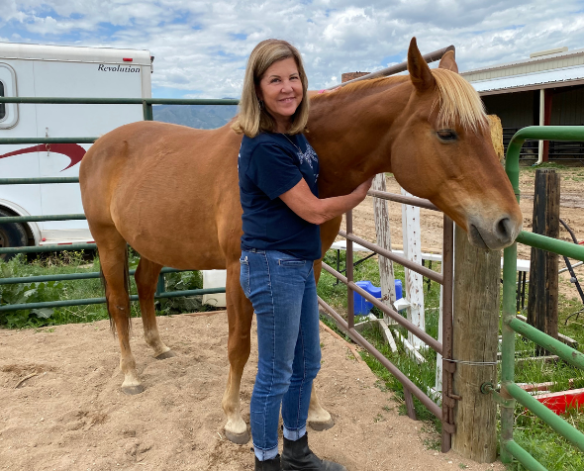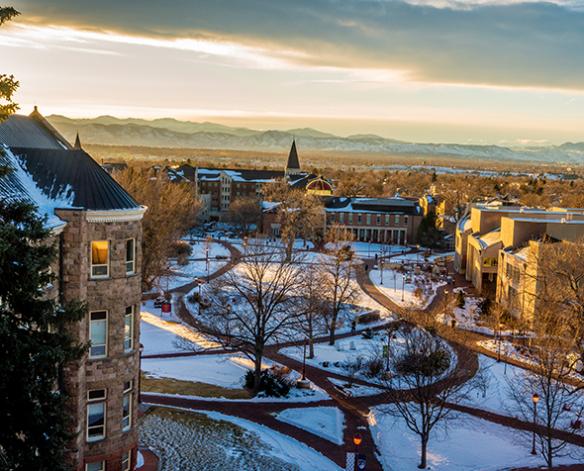Events at GSSW
A Hub for Social Justice and Civic Engagement
At the Graduate School of Social Work (GSSW), we’re serious about our role as a catalyst for social change in communities near and far. With topics that span social work and social justice interests, our events bring the University of Denver campus and broader community together to learn, grow, mobilize and drive change.
When violence in Charlottesville, Va., captured national headlines, we responded with lectures and workshops that explored racial justice and provoked meaningful — and sometimes difficult — reflections and conversations. When political differences threatened to divide the nation, we answered with the Civic Education for Civic Engagement series, which brought campus and community together in a spirit of collaborative problem-solving.
Helpful Links:
Many of our events sell out. Be the first to know what’s coming so you don’t miss an opportunity to learn, grow and drive change.
Upcoming Events
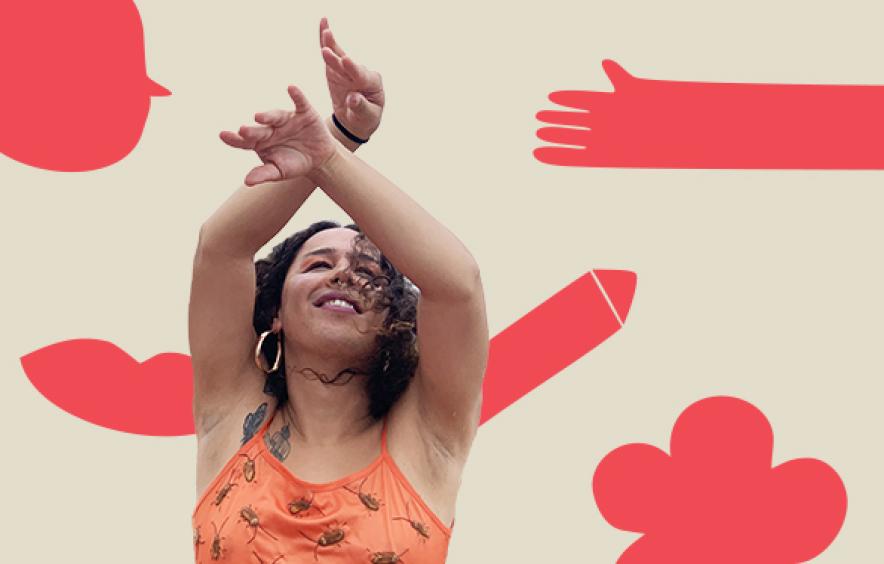
Artistic Practices and Social Work with Lia García
Join transgender activist Lia García for a free half day of conversation about artistic practice, social work and queer expression. Attendees can choose to attend one or both of the workshops, but are encouraged to stay for the entirety of the event.
- Rescheduled to April 18, 2024
- Craig Hall Community Room
-
Schedule
- 4:00-4:15 p.m. - Arrival and Welcome
- 4:14-5:15 p.m. - Presentation (60 min)
- 5:15-5:45 p.m. - Break
- 5:45-7:15 p.m. - Workshop (90 min)
- 7:15-8:00 p.m. - Closing
Boxed meals and refreshments will be provided.
-
Presentation | Social Work as a Strategy of Pedagogical and Artistic Intervention to Combat Gender Violence
4 – 5 p.m. MDT – in person only
Objective: to share with the participants three case studies located in the context of Mexico with groups of men (policemen, firemen and doctors) in which social work and its intimate crossings with the pedagogy of affections as well as with the performing arts allowed the creation of a social intervention of sensitization focused on addressing gender violence experienced by women and people of LGBTIQ diversity.
The photo and video archive of the three cases will be shown and then some questions will be asked for people to answer and stimulate a collective debate.
Participants will encounter questions such as:
- Taking the conference as a reference, how do you imagine an interdisciplinary social work intervention in your context?
- What social problems would you like it to address and why is it necessary?
- What actions would you implement in this intervention taking critical elements from pedagogy and art?
- What is the role of emotions of a social worker in your practice?
-
Workshop | Body, Time and Space. Three Keys to Deepen Your Social Work Practice
5:30 – 7:00 p.m. MDT – in person only
Through dynamics focused on the theater of the oppressed, a pedagogical tool worked by the Brazilian educator Augusto Boal who focuses his attention on the body and emotions as two fundamental spaces to produce knowledge in any social and cultural practice, we will develop this workshop. The dynamics involve movement, play, performance and teamwork.
From the pedagogical dynamics, which are also scenic, we will ask questions that will awaken collective reflection.
- How far does my own body space extend in the practice of social work?
- How do the spaces where social work takes place affect the personal and collective body?
- How is the time of social practice, what are its limitations and possibilities?
- What is the importance of working with the body and emotions for social workers?
Accessibility: This event will be hosted in-person only. The event will be in Spanish with synchronous interpretation via headset into English. Please email GSSW Events if you have additional questions regarding accessibility for this event. We are unable to guarantee that requests received within one week of the event start date will be able to be fulfilled.
-
Lia García's Bio
Lia García is a social worker and educator graduated from the National Autonomous University of Mexico. Activist and defender of the human rights of queer and trans communities of color.
Her work has focused on developing proposals for social and artistic intervention in complex spaces such as prisons, schools, hospitals and public spaces in order to combat transphobia. Her methodology is radical tenderness and affection.
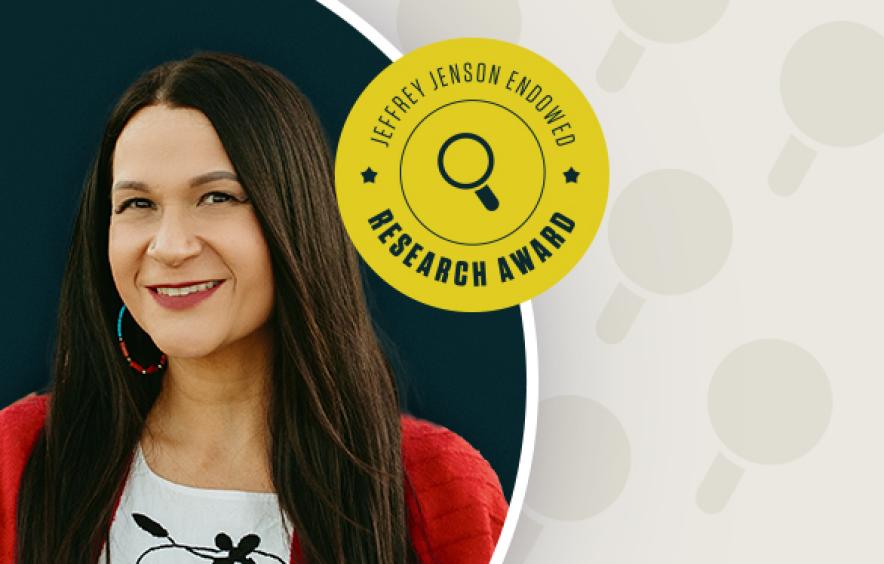
Subversive Meaning Making: Research, Magic & Authentic Self
Jeffrey Jenson Research Award
In this intimate, embodied research experience, Associate Professor Ramona Beltrán will lead us through her journey through the obstacles and triumphs of designing and implementing community-centered social work research. In the feminist spirit of disrupting mainstream research norms, we will engage multiple forms of storytelling and witnessing to explore community experiences of healing, reclamation, and hope.
- April 29, 2024
- 4 p.m. MDT
- Craig Hall Community Room 120
In-Person Only
-
Associate Professor Ramona Beltrán Bio
Associate professor. Dancer. Academic Director. Producer. Mother. An award-winning public intellectual with global initiatives in historical trauma and healing and storytelling methodologies that have been cited by researchers and practitioners alike.
In her 20 years of professional experience, spanning the United States to New Zealand, she has worked alongside institutions and Indigenous and Latinx communities, spotlighting solutions that are present in our creative and cultural-driven practices. Her contributions have been invited by distinguished institutions including the Centers for Disease Control and Prevention, the White House Office of the Vice President, and Harvard University as well as prominent cultural institutions including the Denver Art Museum, History Colorado, and the Latino Cultural Arts Center. Her research has been funded by the National Institutes of Health, National Institutes of Mental Health, the National Libraries of Medicine and Colorado Department of Public Health and Environment.
Dr. Beltrán is a fiercely loving mother of three and is a multiracial Chicana of Indigenous Mexican descent. She acknowledges that all the earth has an Indigenous name, and a community meant to steward it.
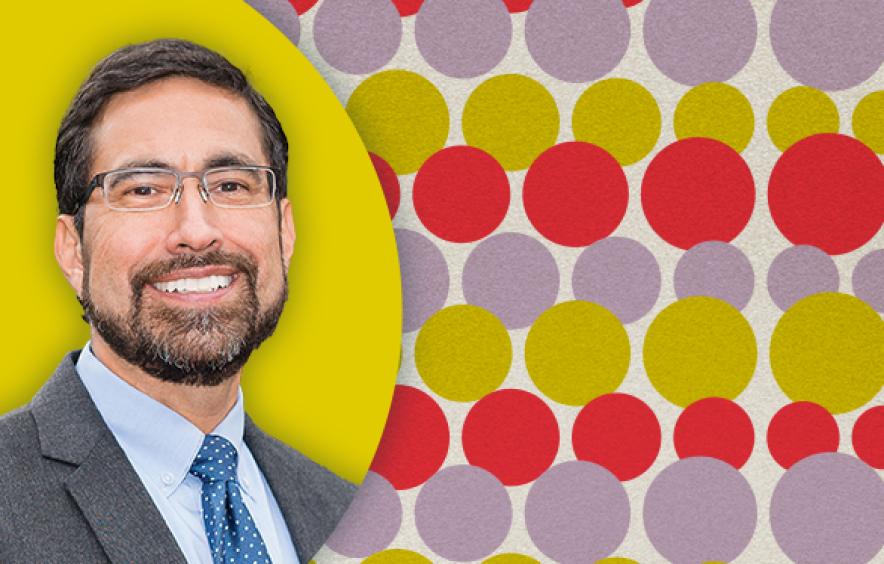
Discovery and Humanity in the Classroom: Reflections from a Clinical Professor Michael Talamantes
Clinical Professor Michael Talamantes will discuss concepts important for successful teaching & learning experiences in the classroom. Discovery of self, identity, motivations & goals are foundational, as is the importance of being open to new discovery from each student and/or from each class that you teach. Elements of humanity such as vulnerability, awareness, accountability and acceptance will also be discussed as he shares his faculty journey from teaching over 100 classes over the years.
- May 7, 2024
- 11:00 a.m. – 12:30 p.m. MDT
- Craig Hall Community Room 120 & virtually
-
Michael Talamantes Bio
Talamantes, LCSW, is a Clinical Professor and a Licensed Clinical Social Worker at the Graduate School of Social Work where he has been an appointed faculty member since 2013. He coordinates many of the health and wellness classes and is also the coordinator of the dual degree MSW/MPH program. He was a Clinical Social Worker at the University of Colorado Hospital for 21 years. He is the Co-PI of three HRSA's Behavioral Health Workforce Education and Training grants (CLIMB) which was awarded to GSSW in 2017 and again in 2021 and Co-PI of HRSA’s Opioid Workforce Expansion Program which was awarded to GSSW in 2019. He is also a collaborator on Colorado’s Geriatric Workforce Enhancement Program. Talamantes is a Disparities Scholar from the National Institutes of Health Translational Health Disparities Conference. He is an active member of the Council of Social Work Education (CSWE), the Society for Social Work Leadership in Health Care (SSWLHC), the Collaborative Family Healthcare Association (CFHA) and the National Association of Social Workers (NASW). He received the Excellence in Teaching Award for Appointed Faculty in 2014 and 2023 and the Mentorship Award for MSW students in 2018. Talamantes also has an appointment as a Clinical Instructor at the University of Colorado School of Medicine-Department of Pediatrics and as an Adjunct Assistant Professor in Community and Behavioral Health Department at the University of Colorado School of Public Health.
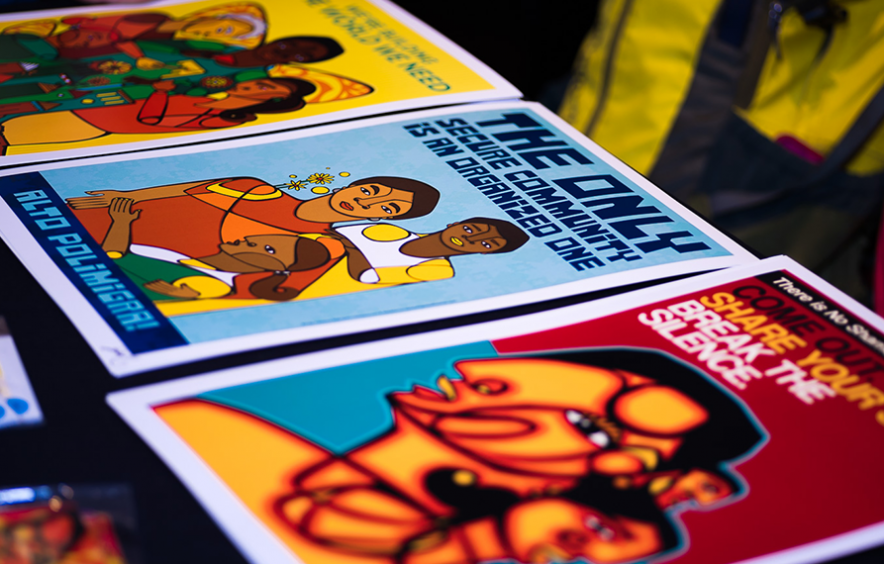
Events That Engage
Over the past two years, more than 10,000 people in 21 states have participated in GSSW events either online or on campus. All of our events are designed to be inclusive and accessible — most are free and many are live streamed. We invite alumni and experts from throughout the campus and community to share their knowledge.
Virtual Continuing Education
Our continuing education programs — from licensure preparation to professional development — provide ongoing opportunities for our alumni, social work practitioners and community members to strengthen and enhance their professional knowledge and repertoire of skills. Want to learn something completely new? You can do that, too.
Past Event Series
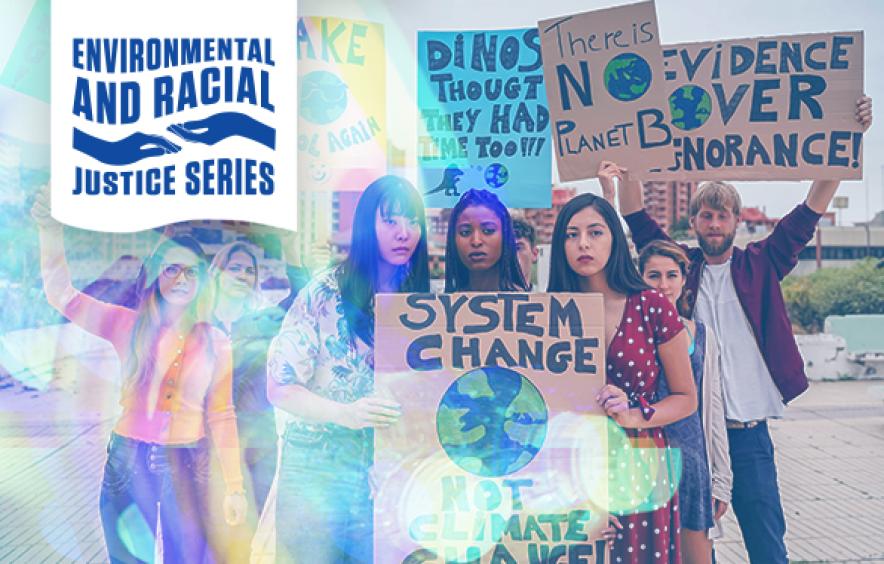
Environmental and Racial Justice Series
Environmental racism is a lived experience for many communities of color, every day, in the U.S. and globally. Pollution, land loss, food and water insecurity, weather extremes connected to climate change, and other environmental problems unfairly and disproportionately impact Black, Indigenous, Latinx, Asian, Pacific Islander, and other racially minoritized communities. In this 3-part series—co-sponsored with the Grand Challenge to Create Social Responses to a Changing Environment—we explored community practice and partnership, social work education, and policy changes needed at the nexus of environmental and racial justice, in pursuit of a healthy and thriving world for all.
-
Part 1: Disrupting Environmental Racism Webinar
This first panel in the series brought together community leaders, students and scholars to discuss their own community-engaged experiences, the joys and challenges of partnerships in this work, and how we can mobilize action to disrupt environmental racism and create environmental and racial justice.
Panelists included:
Lizeth Chacón, Executive Director, Colorado People’s Alliance
Ajulo Othow, Founder and CEO, EnerWealth Solutions
Smitha Rao, PhD Candidate, Boston College School of Social Work -
Part 2: Transforming Social Work Education
Our guest panelists shared, motivated, inspired, guided and challenged us in our pursuit of social change and ecological justice. Following the presentation, GSSW graduate students moderated the Q&A and discussion with our speakers, furthering the conversation.
Panelists included:
Yolanda Machado-Escudero, Assistant Professor, University of North Florida
Leah Prussia, Associate Professor, The College of St. Scholastica -
Part 3: Mobilizing Power for Action and Change
A panel with leading advocates, analysts and elected officials provided us with tools for mobilizing power for environmental and racial justice.
Panelists Included:
Charles E Lewis, Jr, PhD, MSW
Director, Congressional Research Institute for Social Work and Policy
Jessica Black, PhD, MSW
Assistant Professor, Alaska Native Studies and Rural Development, University of Alaska FairbanksTessa Kaneene, MUP
Senior Advisor, Harvard University Kennedy School of Government
Taylor Bazajou, MSW
Community Engagement Director, Councilwoman Teri Castillo, District 5, San Antonio, TXHosted by Associate Professor Lisa Reyes Mason.
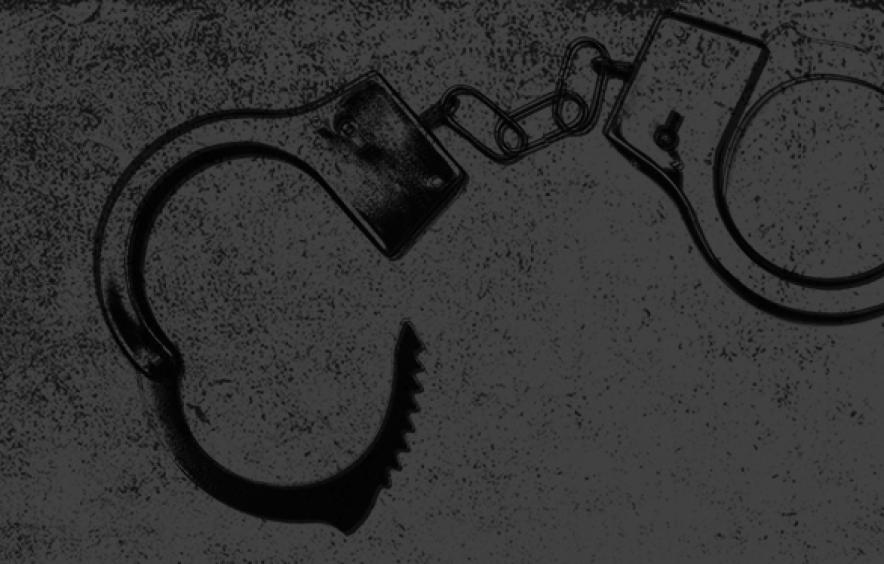
From Criminalization to Community
Communities nationwide are contending with the systemic racism, implicit bias and excessive force endemic in American policing, justice and other social systems. But even as we work to dismantle systems that disproportionately harm people of color, we must also critically examine our own complicity in unjust systems and work to create change.
Watch the events from this two-part series held in August 2020.
-
Past Event: Reimagining Justice
Activists, scholars, social workers and individuals involved in the criminal justice system invited participants into their experiences through personal storytelling and audience dialogue. They discussed their involvement with the justice system and challenged the audience to imagine a system that truly delivers justice for all. The event was facilitated by Assistant Professor Shannon Sliva and Clinical Assistant Professor Brian Gonzales. Panelists included (in order of storytelling) Jamiylah Nelson, Chris Richardson, Apryl Alexander, Kevin Bishop, and Sharletta Evans.
-
Past Event: Social Work's Role in Safety, Security and Policing
What does “defunding the police” really mean? What alternatives to public safety models are being used, and how can social work help to create communities that are safer and more just? Explore these questions and more with a panel of local activists and experts.
Resources mentioned at the event:
- Justice Services including Co-Responders (Colorado Office of Behavioral Health)
- Co-Responder Programs
- New programs use mental health professionals as an alternative to police
- New program diverts some 911 calls from police to a mental health team
- Senate Bill 217 Law Enforcement Integrity (Colorado)
- CAHOOTS
- 911 Diversion (Denver)
-
Past Event: Journeys to Abolition: On the Road to Changing Everything
The convergence of the COVID-19 pandemic with the enduring issue of state violence has thrust the word “abolition” into mainstream discourses more so in the past year than perhaps any other time. In these discourses, much has been distorted and misunderstood, and the people who are deeply engaged in abolitionist study and practice—predominantly Black, Brown, LGBTQIA+ folx—are not centered. Our panel brought together students, organizers, and scholars of abolitionist praxis to discuss their personal journeys to, and understandings of, abolition as a philosophy, organizing strategy, and daily practice. This event was an invitation to not only gain clarity around what “abolition” truly means, but to hear firsthand the complexity involved with unlearning the default understandings that separate us and building new ones that bring us closer together.


